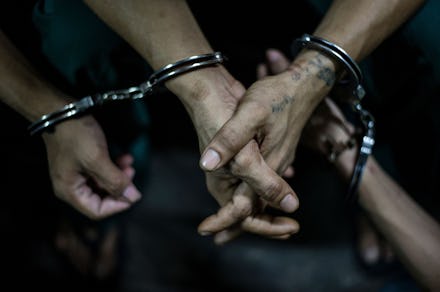The US Justice Department says it's unconstitutional to jail people who can't afford bail

On Thursday, the United States Department of Justice filed a document to a federal appeals court in Georgia, arguing that jailing someone who can't afford to make bail is unconstitutional.
According to NBC News, the court document said the long-time practice flies in the face of the 14th Amendment's guarantee of equal protection under the law.
"Fixed bail schedules that allow for the pretrial release of only those who can pay, without accounting for the ability to pay, unlawfully discriminate based on indigence," stated the DOJ.
The department filed the document in response to the case of Georgia man Maurice Walker, who was charged with "being a pedestrian under the influence," according to NBC — a misdemeanor offense. Walker spent six nights in jail because he was unable to pay his $160 bail.
A May report from the Prison Policy Initiative shows that 70% of the 646,000 people held in 3,000 local jails across the country are there awaiting trial, "meaning they have not yet been convicted of a crime and are legally presumed innocent."
These statistics are due in large part to the money bail system, which disproportionately affects the poor. According to the report, in 2015, people in jail had a median income of just $15,109 before their incarceration — half that of non-incarcerated people, and even less than the median pre-incarceration income of people who are in prison.
While bail functions to ensure those charged with crimes appear in court, a spokesperson from the National Association of Criminal Defense Lawyers told NBC revising the bail system is an important step toward ensuring "pretrial liberty" is the "norm."
The DOJ's statement on bail came the same day as its historic condemnation of the country's private prisons, marking an important day for criminal justice reform.